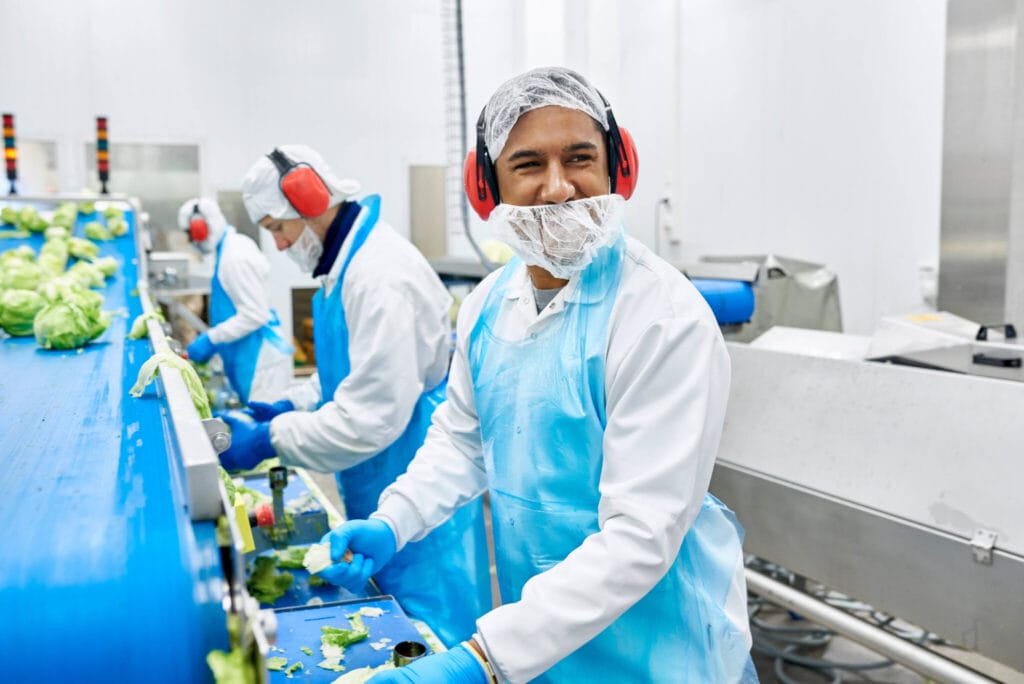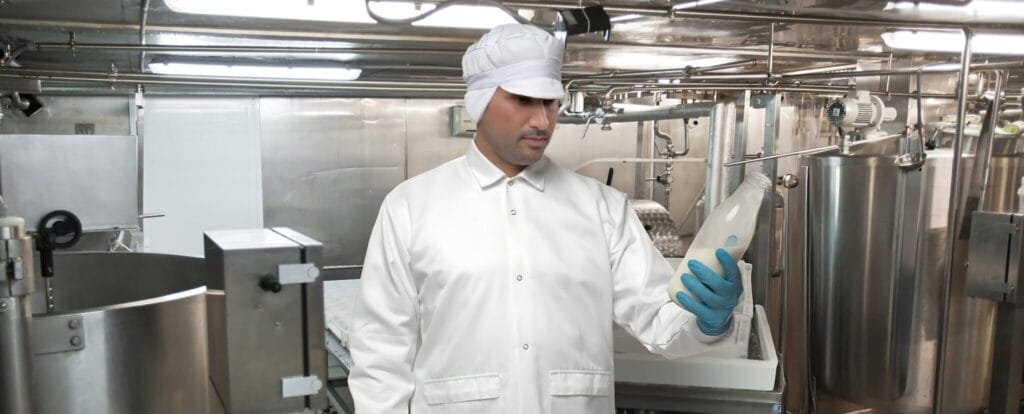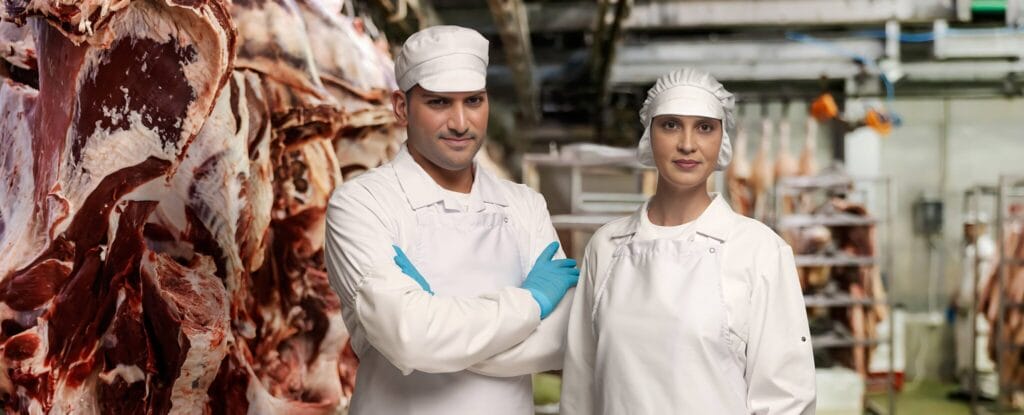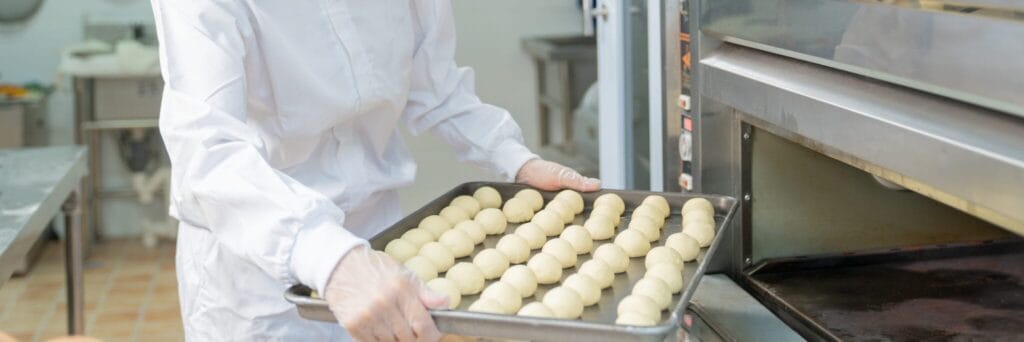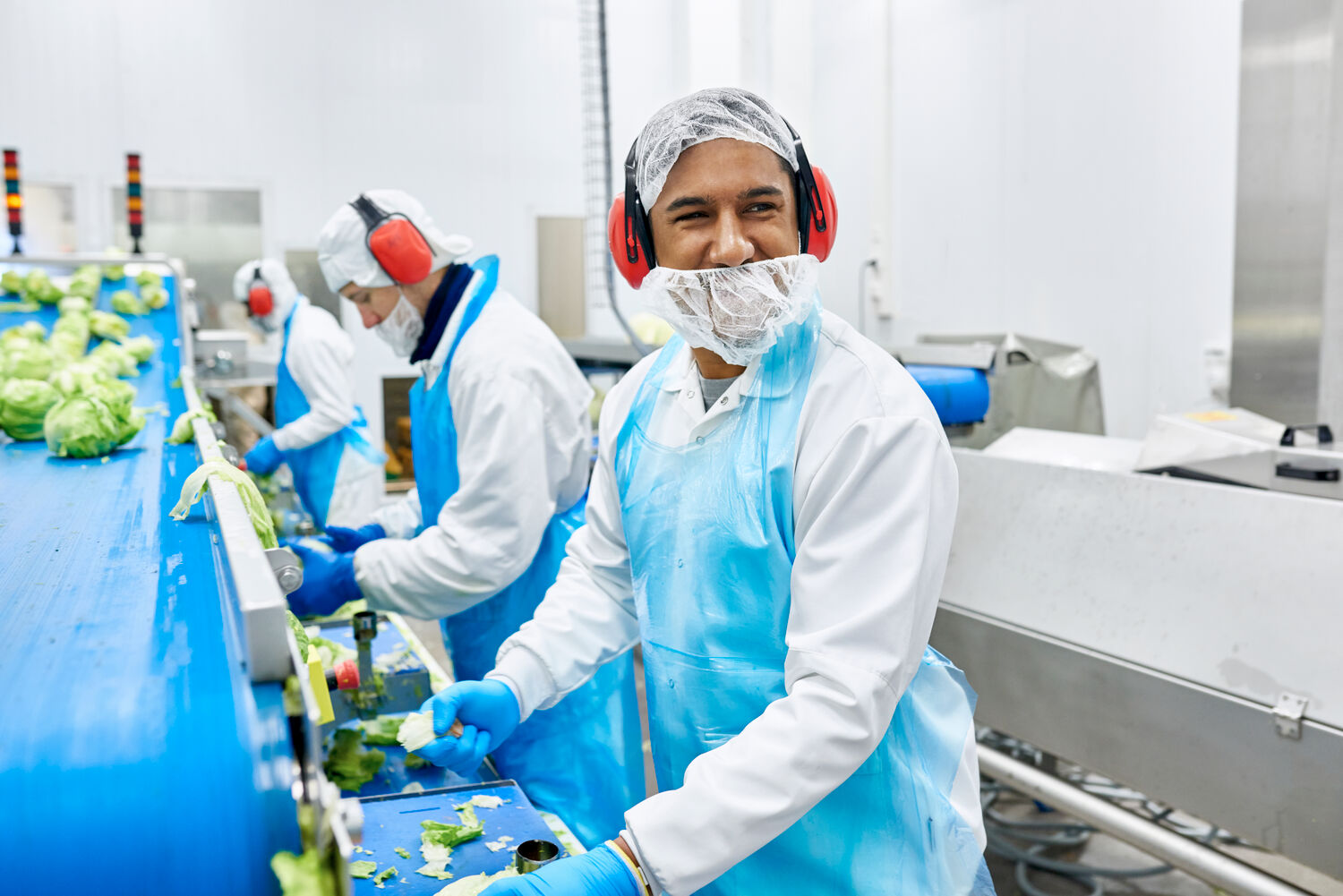
What is workwear as a service in food industry?
Maintaining stringent hygiene standards is not just a regulatory requirement in the food industry, but a key component for ensuring consumer safety and brand reputation.
Workwear as a service offers a strategic advantage by providing businesses with an efficient and compliant solution for managing employee uniform needs. By opting for rental services, companies can avoid the upfront costs associated with purchasing and maintaining a large inventory of uniforms. This flexibility allows businesses to allocate resources more effectively, focusing on core operations rather than logistical challenges.
Moreover, workwear as a service in food industry ensures that all uniforms comply with the highest hygiene standards, crucial for the food industry. Lindström provides a comprehensive service that includes regular laundry, repair, and replacement of uniforms, ensuring that employees always have access to clean and presentable workwear. This not only enhances compliance with food safety regulations but also elevates the overall convenience for businesses.
By outsourcing workwear management, companies can improve operations, reduce administrative burdens, and focus on what they do best – delivering quality food products to their customers.
What are the key features of workwear as a service?
Workwear as a service is designed to meet the diverse needs of industries by offering a comprehensive suite of features that ensure operational efficiency and employee satisfaction. One of the standout features is the regular supply of clean uniforms. Companies like Lindström ensure that workwear is laundered, repaired, and replaced as needed, providing a seamless experience for businesses. This continuous cycle not only guarantees that employees have access to fresh garments but also extends the lifespan of each piece through meticulous maintenance.
Customisation options are another critical component of this service. Businesses can tailor uniforms to align with their brand identity, ensuring that employees not only look professional but also feel comfortable and safe. Additionally, the service includes provisions for repairs and replacements, addressing wear and tear promptly. Such proactive management of workwear helps in maintaining compliance with industry standards, which is crucial for sectors like food processing where hygiene cannot be compromised.
How does Lindström implement workwear as a service?
Lindström implements workwear as a service with a focus on innovation, efficiency, and customer satisfaction. Their process begins with a thorough assessment of the client’s needs, including the number of employees, regulatory requirements, and specific industry challenges. This allows Lindström to design a tailored workwear solution that addresses these unique needs. The implementation includes setting up systems like RFID-enabled garment tracking, which ensures full transparency and traceability of each uniform piece throughout its lifecycle.
Furthermore, Lindström leverages cutting-edge technology to streamline operations. Their digital platforms provide real-time insights into garment usage, inventory levels, and hygiene compliance, empowering businesses to make informed decisions. Customer support is another pillar of Lindström’s service, with dedicated teams working closely with clients to provide continuous feedback and adapt services as needed. This customer-centric approach ensures that businesses always have access to reliable, safe, and compliant workwear, thus enhancing their operational efficiency.
Why is hygiene important in food industry workwear?
Hygiene is paramount in the food industry, where the risk of contamination can have severe implications for consumer health and brand reputation. Workwear plays a critical role in maintaining these hygiene standards. Uniforms act as a barrier, protecting food products from contamination by external agents carried by employees. Therefore, ensuring that workwear is clean and free of harmful microorganisms is essential to upholding food safety standards.
Moreover, compliance with hygiene regulations such as HACCP and ISO 22000 is non-negotiable for food industry players. Workwear that adheres to these standards helps businesses avoid legal penalties and potential recalls that can arise from food safety breaches. By using services like those provided by Lindström, companies can ensure that their uniforms are laundered to strict hygiene specifications, effectively minimizing risks and safeguarding both employees and consumers.
What are the environmental benefits of workwear as a service in food industry?
Workwear as a service in food industry, as well as in other industries, contributes to environmental sustainability by promoting practices that reduce waste and resource consumption. One of the primary environmental benefits is the circular economy model employed by service providers like Lindström. This model focuses on maximising the lifespan of garments through repair, recycling, and repurposing, thereby reducing the need for new textile production and minimising waste. Still you can rest assured, each garment delivered to you meets the quality standards your industry requires.
Additionally, the use of energy-efficient laundering processes and water recycling systems further reduces the environmental footprint of workwear management. By choosing a rental service, businesses can also decrease the number of garments required, as shared use and optimal maintenance extend the usability of each piece. This approach not only supports sustainability goals but also helps companies align with circular practices, enhancing their corporate responsibility and appeal to environmentally conscious consumers.
